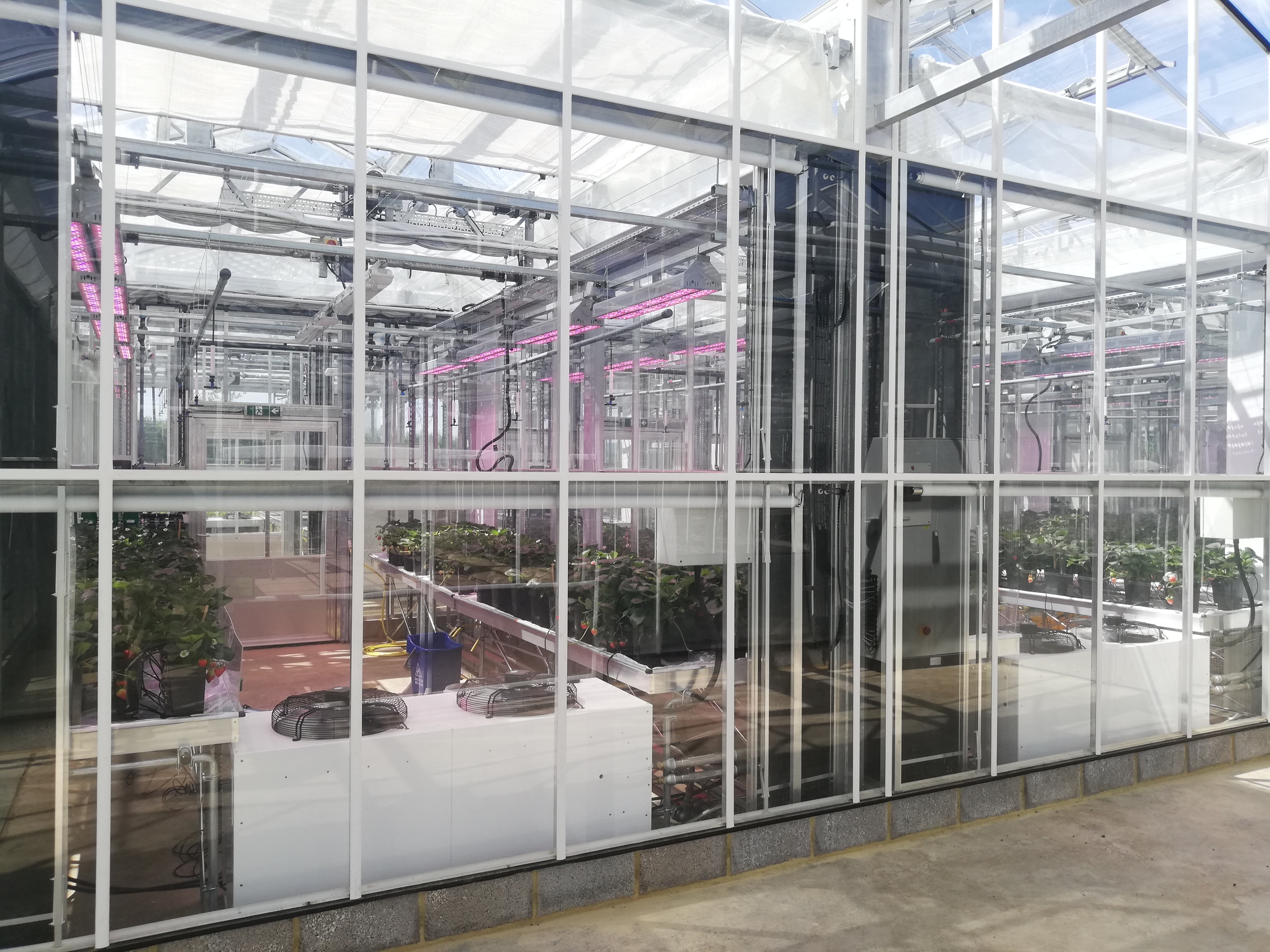GreenTech Hub to innovate sustainable horticulture and viticulture research

Knowledge Exchange Manager, Scott Raffle, explains how investment in state-of-the-art infrastructure at NIAB’s East Malling site will enable the UK fresh produce sector to respond to the challenge of climate change. And reflects on some of the research that is helping make production systems more sustainable.
From May 2022, the horticulture and viticulture industry will have access to a new research facility in the heart of Kent. The GreenTech Hub for Advanced Horticulture includes almost 2,000m2 of specialist glasshouses, 14 modern polytunnels, growth rooms and cold rooms. A Wine Innovation Centre and Research Winery will also be available.
Adapting to modern growing methods
It has been 109 years since the East Malling research site first opened for business. With the launch of these exciting new facilities, the aspiration remain the same – the desire to advance horticultural production in the south-east of England.
In the past thirty years, the UK fresh produce industry has seen a gradual shift away from traditional open field production to protected cropping. Many growers and food producers have quickly had to learn new production skills, which has brought with it both new challenges and new opportunities.
The new facilities have been designed to cater for the cutting-edge research demanded by an industry that is continually evolving and adapting to meet the demands of an exacting food and drink marketplace.
The future of agrifood technology
Growing better quality produce and achieving higher cropping yields are obvious benefits of protected environments, but there are more hidden opportunities.
The design of polythene clad tunnels and glasshouses and the precision growing technologies now available, have made unparalleled advances. Growers now regularly install computer-controlled and robotic systems.
This provides a different level of control over light levels and wavelengths, temperature, humidity, spray application, crop protection, irrigation and nutrition. Any research and development facilities must be able to reflect the level of technology being employed by commercial growers.
Researching sustainable production systems
The GreenTech Hub for Advanced Horticulture will enable us to research more sustainable production systems to combat climate change. From reducing waste to implementing efficient use of resources including water, nutrients and light.
The new facilities will enable us to advance our research in a number of areas to address and respond to the impact of global warming. For example;
Plant physiology
Temperature and irrigation control allow us to test how plants adapt and respond to combined stresses, such as high temperatures and limited water availability. This will give us a better understanding of how crops be managed to keep marketable yields and grow quality produce when impacted by fluctuating temperatures.
Light and temperature control allow scientists to assess the rate of flower and fruit development and to create models of when fruit will ripen and can be picked. We can link the models to weather data to accurately forecast yields. This knowledge should help to manage supply chains and reduce food waste.
Water management
Optimising irrigation and fertigation (combining fertilizer with water) inputs for important commercial varieties of fresh produce will ensure water is used efficiently. We are creating sustainable growing blueprints to reduce emissions to land, air, and water.
Biological control
Biological control agents and biopesticides are sensitive to changes in environment and may require optimum temperatures to work successfully. The climate-controlled glasshouses allow us to trial these products for sustainable integrated pest and disease management strategies as alternatives to conventional chemical pesticides.
Work will also begin on understanding how breeding to improve the nutrient content in fresh produce, such as the levels of vitamins or minerals, can lead to crops that are more resilient to weather-related stresses and pests and diseases.
New varieties
The growth rooms will allow us to identify the best growing conditions for newly bred cultivars of strawberry and other fruits. New sustainable varieties can be bred to be more resistant to pests and diseases without pesticides, or to produce higher yields with fewer inputs, for example.
The GreenTech Hub for Advanced Horticulture is funded by Growing Kent & Medway, from the UKRI Strength in Places fund, the East Malling Trust, and Local Growth Funds from Kent County Council.
To find out more about how the new Hub can support your business, please get in touch. [email protected]
Research
05.06.2022
